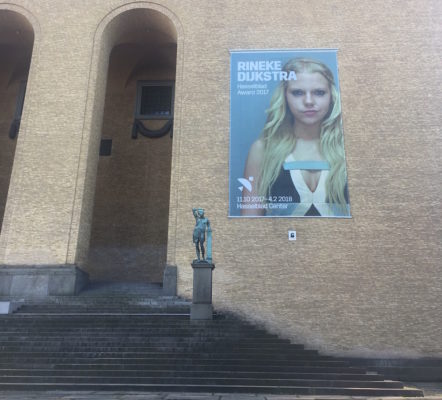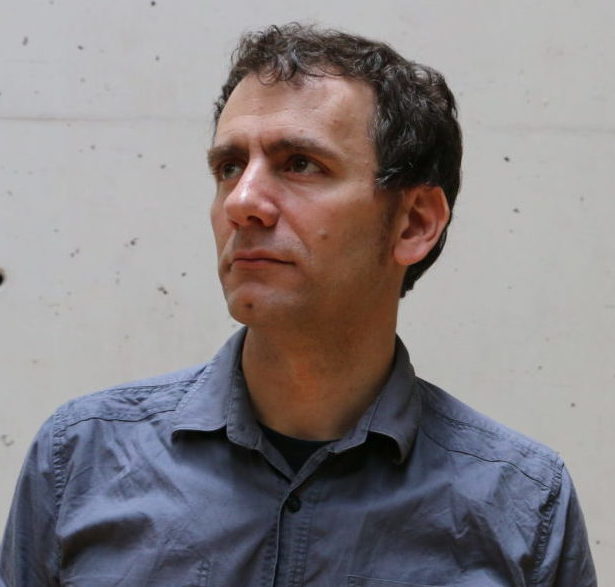Search
To search for an exact match, type the word or phrase you want in quotation marks.
A*DESK has been offering since 2002 contents about criticism and contemporary art. A*DESK has become consolidated thanks to all those who have believed in the project, all those who have followed us, debating, participating and collaborating. Many people have collaborated with A*DESK, and continue to do so. Their efforts, knowledge and belief in the project are what make it grow internationally. At A*DESK we have also generated work for over one hundred professionals in culture, from small collaborations with reviews and classes, to more prolonged and intense collaborations.
At A*DESK we believe in the need for free and universal access to culture and knowledge. We want to carry on being independent, remaining open to more ideas and opinions. If you believe in A*DESK, we need your backing to be able to continue. You can now participate in the project by supporting it. You can choose how much you want to contribute to the project.
You can decide how much you want to bring to the project.

The inability to formulate a tomorrow. I still have a very sharp memory of the death of David Bowie; it’s as if it were dramatically marked, as if there were a before but no after. And that of Leonard Cohen. The emotional elements that were aroused by their deaths proved that everything was collapsing and that our frame of reference was either unreliable or had been surpassed. And Bauman. The frame was disappearing; the emptiness entailed darkness and at once a possible reformulation, yet speed seemed to hinder the very option of reformulation.
And not only speed. Everything falls, and continues to fall. We fell in the Twin Towers; we fell during the repression in Egypt that followed the Arab Springs; we plunged completely into fear as normality and we collapsed before the media powers that destroyed all chances of a change of system in Spain. The 15M movement and its mainstream political offshoots were destroyed by the media in order to preserve the status quo, paying no attention to corruption and forestalling its reformulation. The questioning of the regime, in Catalonia too, was met with forceful charges of hate and the impossibility of dialogue, and even of mutual understanding.
So we sought to escape through love and fragility to discover that they also included pain, of course. Ingo Niermann, Chris Kraus, Nathalie Djurberg, Kathy Acker, Sara Ahmed. The vital lifelines were no longer gentle but outlined precipices. And a fear. We began to share and to explore other types of formulation beyond what is accepted. We destroyed history because the present didn’t allow itself to be destroyed, and we investigated the future as an emotional escape route too. To leave here right now yet with no idea of where to go. To leave now, to attempt to leave this continuous present that has replaced monotony with bewilderment. But some looks focus on this fragility and some bodies begin to be empowered. A few weeks ago, I stood still to look at a huge poster advertising an exhibition by Rineke Dijkstra. The gaze – not mine, but the questioning gaze in the image – introduces something like a great complexity in its interior. A gaze that is now historical and growing in size. A gaze that is now somehow different. Or perhaps it is this ‘now’ that is different and makes us check all that surrounds us once again.
The girls portrayed by Rineke Dijkstra and their looks at the camera, their bodies facing the camera, are read, however, from the point of view of a contextual change that is historical: #metoo. These bodies are beginning to be a part of something larger; they are no longer individual beings who suffer and may suffer in silence but a group that has said enough is enough. And the poster, on the façade of a museum, is huge. Fragility is now power. The gaze is from above; it also incorporates its own history and it is aware of the fact. The relationship between fragility and fear is different. The body is present; it doesn’t hide. Violence, if it arrives, will be magnified and will have the same visibility as this body, so careful with violence. And violence is the system.
At a meeting a few days ago we were discussing a possible change of paradigm. Active feminist positions, as noted by Sara Ahmed, have been interpreted as that killjoy that generates unease. To say at a party that a certain remark was chauvinistic, that it would be best if that hand was kept in your pocket, that those jokes aren’t funny or that that man doesn’t stop talking but doesn’t listen, was usually frowned upon. Come on, it’s not that important, you’re exaggerating, you’re spoiling the fun — at a party, a meeting, an exhibition, a dinner and so many other situations. And with #metoo, killjoy is no longer the only option; a change in roles has taken place and gazes are now rapidly shared between people who will not necessarily feel alone or unable to empathise any longer. A new group that knows it has capacity for action is created, a group that knows and defines itself in terms of understanding and sharing the past, the present and a possibility for the future, and has a talent for waiting, which is important.
Images of Rineke Dijkstra changing; bodies no longer possessed become possibilities for action, and even so, their fragility implies that steps cannot be taken too quickly because, as we know, we have been defeated by speed. This situation involves having a shared plan and resisting until a future explosion to avoid it blowing up in our hands.
Slowly. Seeing if this unfairness called the reality of 2017 to 2018 that we cannot understand – and that nobody else can – becomes the basis from which to change much of what has brought us so far; seeing informal structures crying aloud for us to make them visible, and so give way to criticality. All these accidents that happen.

Director of Index Foundation, Stockholm, exhibition curator and art critic. Yes, after Judith Butler it is possible to be several things at once. He thinks that questions are important and that, sometimes, to ask means to point out.
"A desk is a dangerous place from which to watch the world" (John Le Carré)